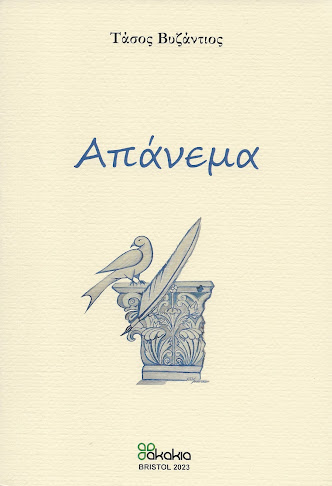Τις τελευταίες ημέρες είχαμε την ευκαιρία να παρουσιάσουμε το ιστορικό Πανεπιστημιακό Μουσείο Ashmolean της Οξφόρδης.
Σ’ αυτό -μεταξύ άλλων- βρίσκουμε και την Eλληνική Aίθουσα (Greek Room). Είναι η Aίθουσα Νο. 16.
Εννοείται πως το δωμάτιο αυτό έχει εκθέματα εξαιρετικής αξίας, δείγματα του αρχαίου και αθάνατου Eλληνικού Πολιτισμού.
Είναι τιμή μας που αυτά βρίσκονται σε έναν τέτοιο χώρο και προβάλλονται προς ένα ευρύτατο κοινό, το οποίο μένει έκθαμβο μπροστά στα έργων των σπουδαίων καλλιτεχνών προγόνων μας.
Σε έναν από τους πίνακες του εν λόγω δωματίου διαβάζουμε το παρακάτω πολύ κολακευτικό, για την ελληνική γλώσσα και κουλτούρα, κείμενο:
Greece was the birthplace of many significant cultural movements that continue to have an impact upon the character of the world today.
For example, we might visit the theatre to see a tragedy, a pantomime or a musical comedy (all words derived from Greek). There will be scenery, and dialogue between the characters. Dances are choreographed and an orchestra accompanies the chorus. We might also go to the cinema, watch television or read the Bible.
We owe to the Greeks many other concepts, such as astronomy, anatomy, aristocracy, monarchy and geography. Politically, Greece saw the beginnings of democracy (but also of tyranny). Philosophically, it was the home of Aristotle (but also Plato), and it saw the beginnings of atomic theory. Artistically, it produced Phidias, the master of the chryselephantine cult statue, but also innumerable pot painters. Greek literary giants include Homer, the dramatists Aeschylus, Sophocles, Euripides and Aristophanes, and the historians Herodotus and Thucydides.

















































No comments:
Post a Comment